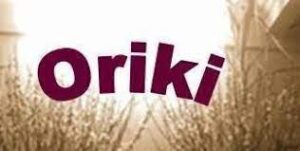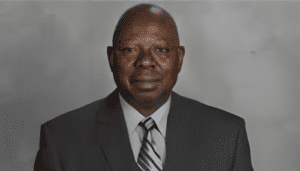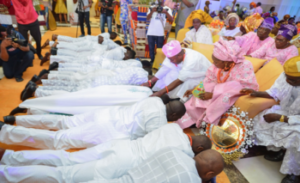
Prison administration in Nigeria and threats of jail break
Prison security and administration in the country has been a matter of intense debate and criticism at various public fora since the breach of security at Kuje Maximum Custodial Centre in July 2022.
The problems of dilapidated prison structures, congestion, high number of awaiting trial inmates, poor care and treatment of inmates and related matters, have also remained issues of concern about prison administration in the country.
This has led to growing advocacy for the protection of prisoners and improvement of custodial facilities in the country.
In response to these, the Federal Government has initiated holistic prison reforms, including the modernisation of custodial centres to ensure the reformation and rehabilitation of inmates.
In spite of this, stakeholders said there is a need to radically shake up the system to enthrone efficient protection of custodial centres to stop jail breaks and ensure timely arrest of all escaped prison inmates.
The Kuje jailbreak in July typified the laxity with which custodial centres were being managed in the country.
This is so, because despite the high number of terrorists under detention in the facility and intelligence report of impending attack, nothing was done to fortify the facility.
The government confirmed that 64 Boko Haram terrorists detained in the facility were among the 879 inmates that escaped. Kuje is the ninth successful jailbreak since 2015.
However, Minster of Interior, Mr Rauf Aregbesola has assured that the government had taken measures to enhance the security of custodial centres to stem all threats from within and outside.
He added that the government would upgrade preparation by instituting military bases, police, and other armed agencies stations around all custodial facilities.
Aregbesola ordered officers of the Nigeria Correctional Service to “shoot to kill” anyone who attempted to attack any of the facilities, and officially declared custodial centres as danger zones.
“People who will be in maximum and medium custodial centres must be tough. We have had too many embarrassing attacks and we must put a stop to it.
“Any effort to breach our facility is not acceptable. Don’t shoot to injure, shoot to kill. Don’t shoot to disable, shoot to kill,” he directed.
The Minister emphasised that custodial centres are “total embodiment of the authority of the Nigerian state to guarantee the security of the people,” as such must be protected at all cost.
To further strengthen the security of custodial centres, the government has inaugurated a command and control room for real time monitoring of selected custodial centres across the country.
“Inmates can be monitored without any violation of their rights. With this, jailbreaks and riots can be avoided or nipped in the bud,” Aregbesola said.
The government is also building modern prison villages with combined capacity to accommodate 9,000 inmates, to address the problem of congestion in the various custodial centres in the country.
The facilities are being constructed at Karshi in the FCT, Janguza in Kano and Bori in Rivers.
“Our administration on assumption of duty decided to have special facilities which six of such facilities were proposed at the beginning.
“What is special about the facilities we are talking about is, we now have mega facilities, I call it custodial village facility, because each of the six will have capacity for 3,000 inmates.
“This is almost unprecedented in Africa, if not in the world. In Africa, no nation has such facility within my own limit of knowledge from the study of African continent, there is no nation not even South of Africa.
“Three are very close to completion, one is almost completed; that is the one at Janguza in Kano,” he said.
Aregbesola said that the facility in Karshi, FCT was 75 per cent completed while that of Bori in Rivers was about 55 per cent.
“It means the country would now have custodial villages that could accommodate 9,000 inmates, each with 3000 capacity,” he added.
According to the Minister, the three other mega custodial centres in Ilesha, Umuahia, and another in the Northeast are at different stages of take-off.
“Ilesha is determined and the place is on, Umuahia is about to start, but we need financial support intervention to complete the first three,” he said.
The Controller General of Nigeria Correctional Service (NCoS), Mr Haliru Nababa said there has been unprecedented improvement in prison administration in the country.
“The service has enjoyed generous increase in budgetary allocation over the last few years, enabling salient interventions, improvement and landmark achievements.
“All these projects are pivotal to the actualisation of NCoS core mandates. Therefore, there is no doubt whatsoever that the service will experience significant progress in service delivery,” the Controller General said.
Nababa said the service would not rest until it can compete with its contemporaries across the globe.
An Abuja-based human rights lawyer, Joel Omoyeni, called on federal and state governments to decongest correctional centres in order to reduce threats of jail breaks.
Omoyeni said “decongesting the prison is what should be done now. We believe that you solve a problem before it arrives by preventing it.
“For instance, for somebody who has spent five years awaiting trial for stealing generator, how do you reconcile that?
“And another politician is released from prison after three months, either because of no conviction, or no case to substantiate. These are because of plea bargain.
“The young man who is in prison for five years because he steals a generator is so angry that he could do anything, even in custody. That is why you hear of jailbreak.
“If a man goes into prison awaiting trial and in the next three months his case is decided, either convicted or released, there won’t be any need to worry.”



